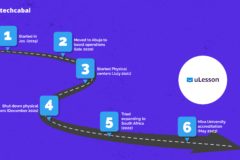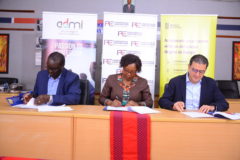Access to quality education is one of the most prevalent problems in Africa. Only 9% of the sub-Saharan population eligible for higher education is in school, and even for them, the quality of education leaves much to be desired. Most universities offer outdated courses that do not prepare students for the digital world that we live in today.
A student of computer science at the University of Lagos told TechCabal that the department is “in the GSM age, while the rest of the world is in the smartphone age,” citing how most of the coursework is paper-based. The state of most universities has made African students some of the most mobile in the world. According to a recent report, almost 500,000 sub-Saharan students are in universities abroad, representing a 21% increase in five years. This shows that Africans constantly seek quality education.
It is against this backdrop that Nexford University, a US-accredited online university, is providing quality education at an affordable rate. The university provides its students with a fully online curriculum and what it calls “education that is relevant to today’s world.”
At the undergraduate level, Nexford offers courses like building a tech startup, artificial intelligence, and e-commerce, while courses like hyperconnectivity and business administration are offered at the postgraduate level. Last year, over 400 Nigerian students graduated from the university. Since its inception, Nexford has enrolled more than 8,000 learners across over 100 countries around the globe, who have completed over 33,000 courses, including 1,500 degrees.
The university has now gained full accreditation from the Distance Education Accrediting Commission (DEAC). Prior to acquiring the accreditation, Nexford was only licensed, but now, their degrees will be more widely recognized by other educational institutions as well as employers across the world. In some countries, a Nexford degree may also help with immigration.
Fadl Al Tarzi, Nexford’s founder, told TechCabal last year that the process of getting accreditation is very stringent and takes four years, involving applying to certain bodies that are approved by the Department of Education in the United States. According to Tarzi, the process is this stringent because the approval body has to make sure that Nexford is sustainable and academically sound.
When asked how Nexford was able to finally get accredited, Al Tarzi told TechCabal that the process took three years and the university proved to the accreditation body that it adhered to policies, processes, and standards that would benefit learners who studied and graduated from Nexford. “While it is a complex process, we are confident that the rigour of the accreditation process signals to our learners and to others in the industry that institutions can offer affordable programs without compromising on quality,” he said.
Speaking about the quality of the education offered at Nexford, Al Tarzi said, “Our skills-focused curriculum is designed to match modern employer needs, using artificial intelligence to analyze millions of job vacancies to better understand current trends and requirements of employers. Over the last four years, Nexford graduates have secured jobs at major multinationals, including Microsoft, Google, KPMG, Facebook, EY, and WeWork.”
Nexford degrees are also more affordable than the average annual tuition for degrees in the United States. Master’s degrees from Nexford cost $3,240, which is considerably less than the $36,000 to $150,000 national average for the US. Bachelor’s degrees from Nexford cost $4,320, while the average national average in the United States is over $100,000.
Although Nexford’s degrees might be cheaper than the national average in the United States, they might represent an expensive option for Africans. Al Tarzi explained to TechCabal that Nexford has teamed up with companies like Piggyvest and Sterling Bank to provide scholarships, internet centres, and financial support in order to address this.
Institutions like Nexford, where digital learning is being adopted, may serve as the ideal training ground for Africans to get ready for life after school in a post-pandemic world where most transactions and businesses are now conducted online.





















